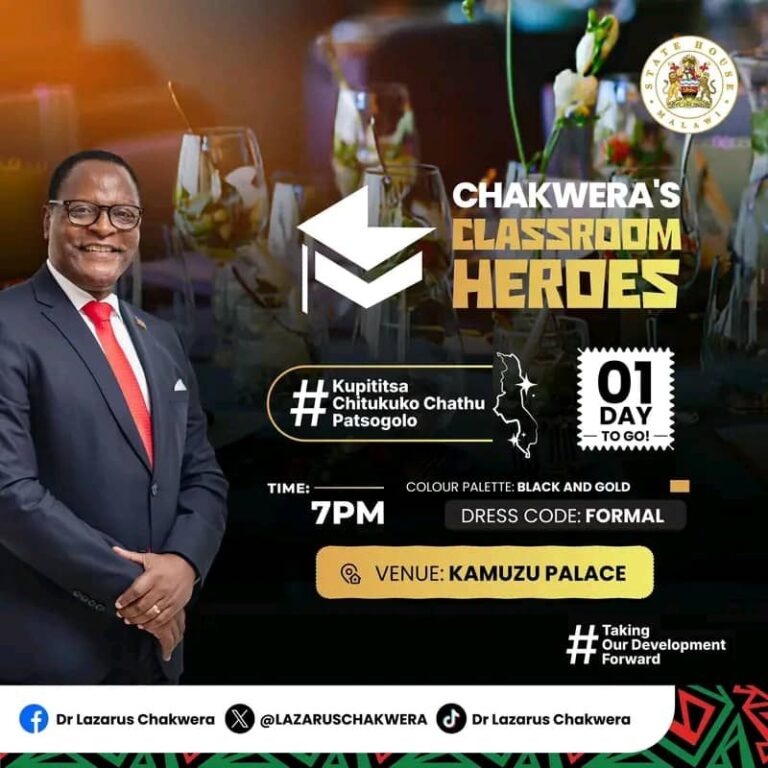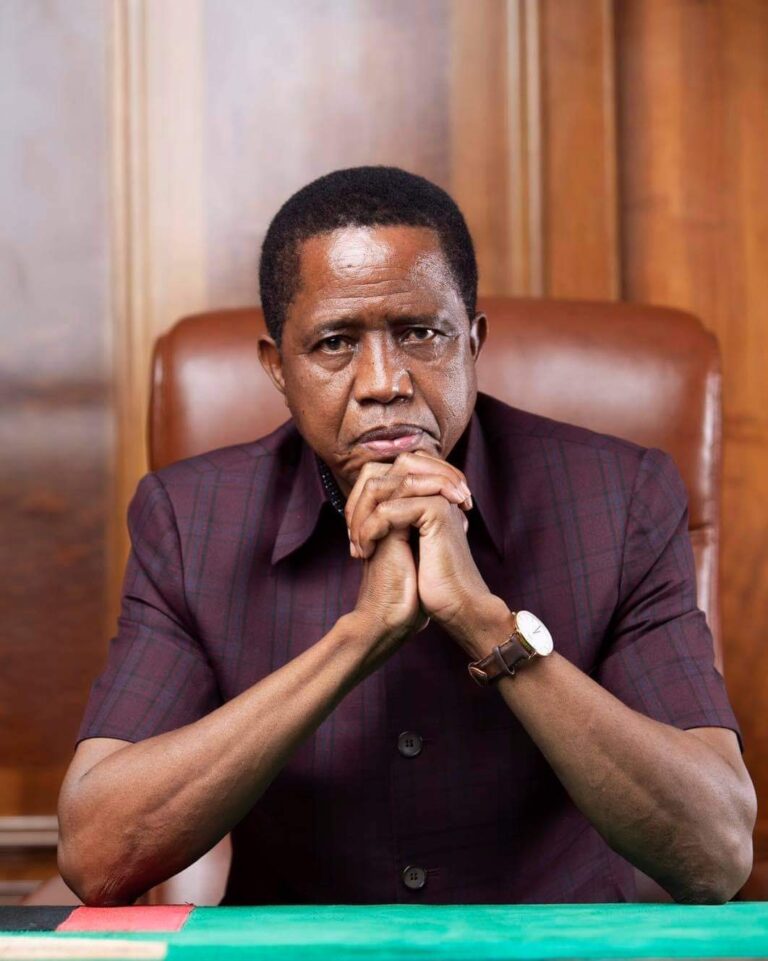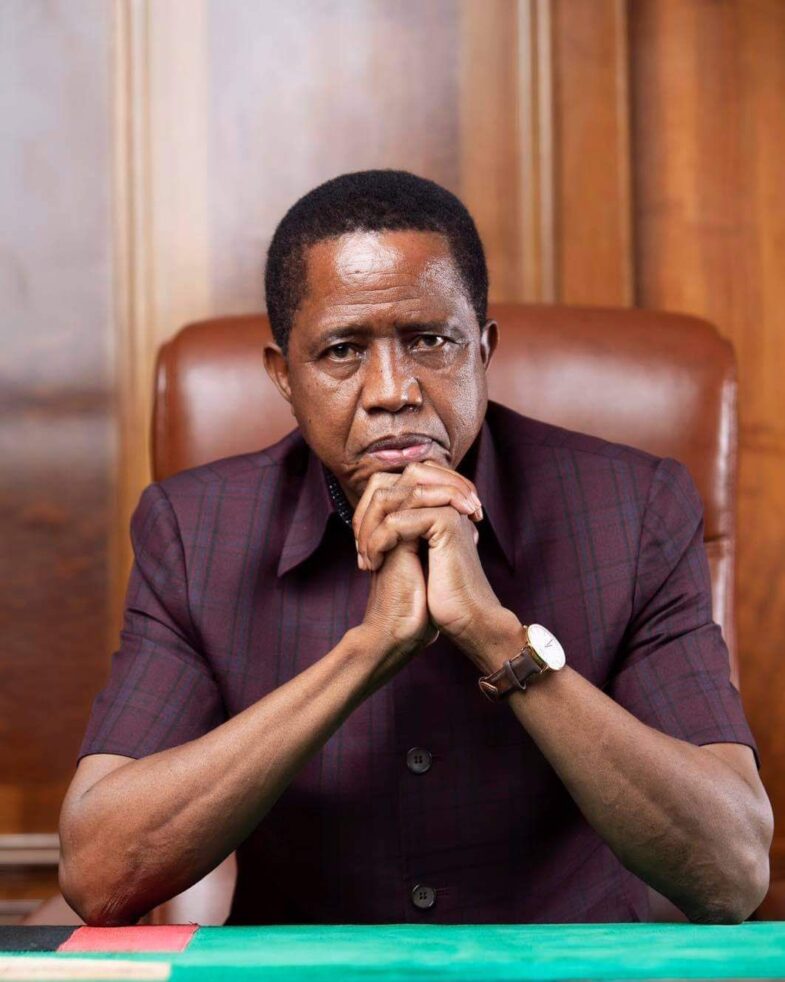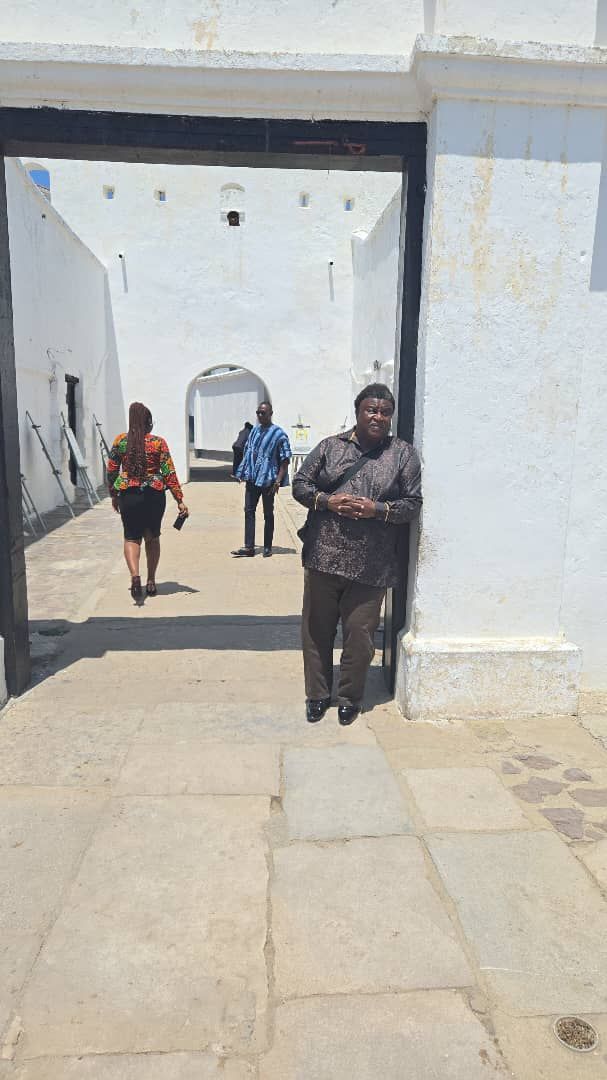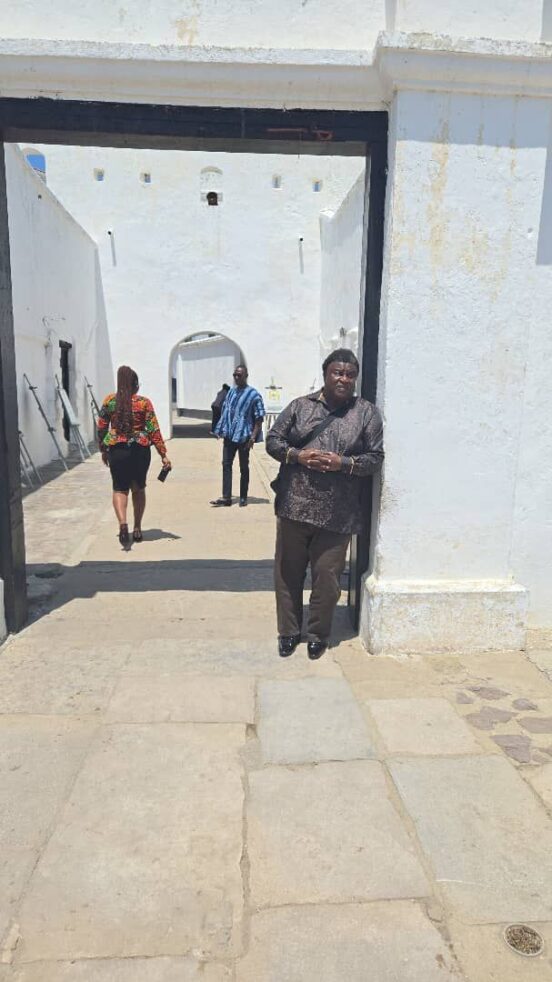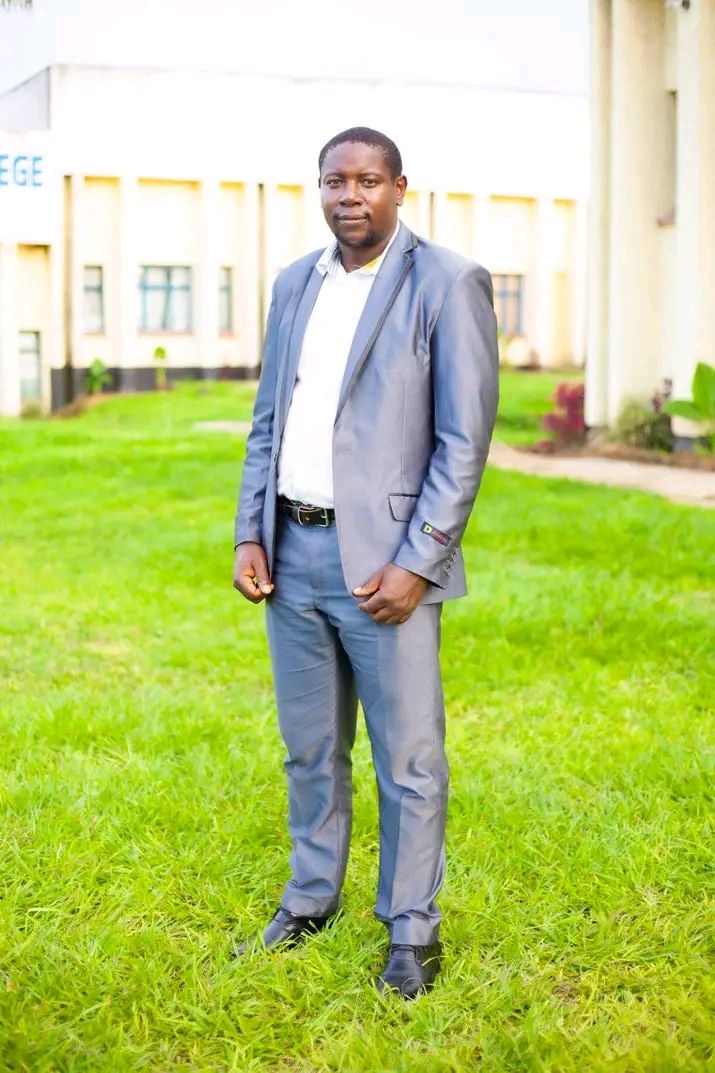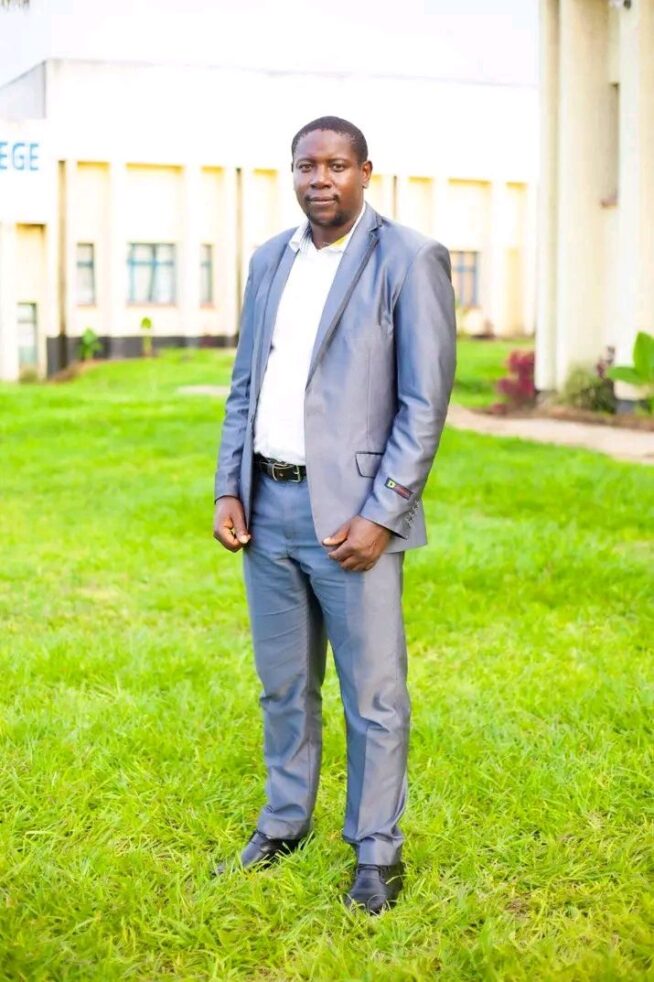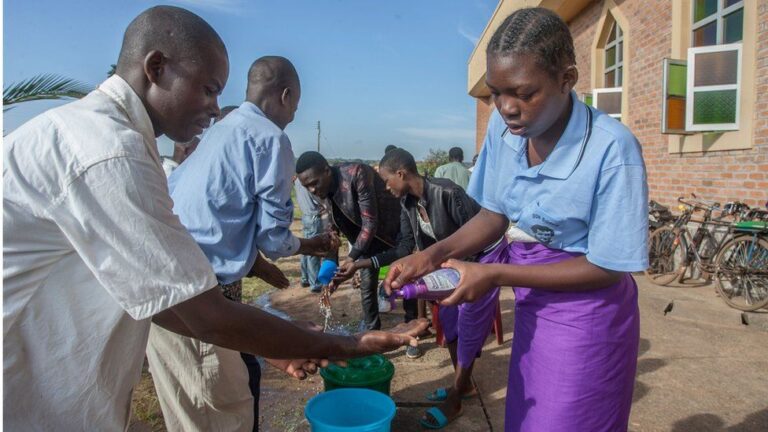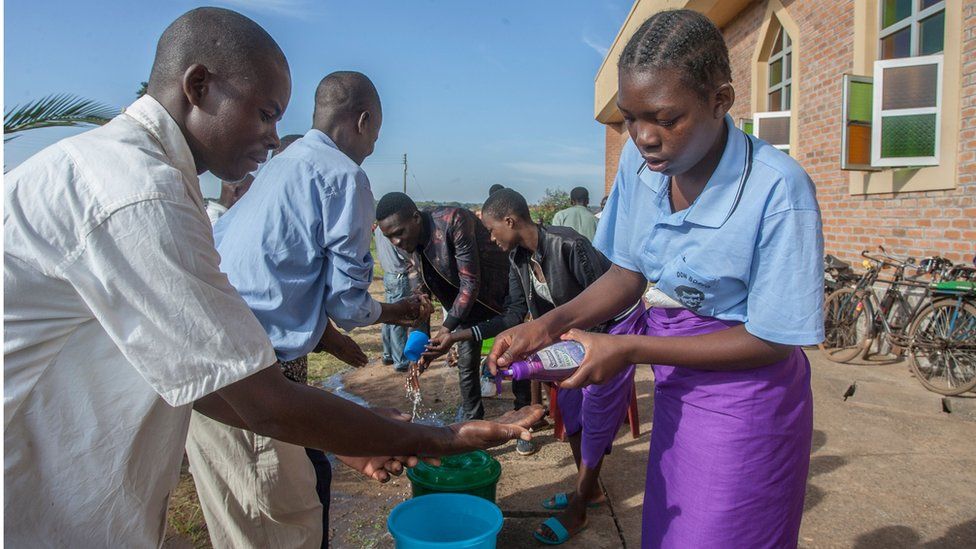By Burnett Munthali
President Lazarus Chakwera has expressed gratitude to Malawians for taking part in nominating their favourite teachers through a national call for recognition.
Writing on his official Facebook page, President Chakwera thanked citizens for participating in the initiative aimed at celebrating outstanding educators across the country.
He acknowledged that he had received thousands of nominations from people who took time to vote for teachers who have made a difference in their communities and in the lives of learners.
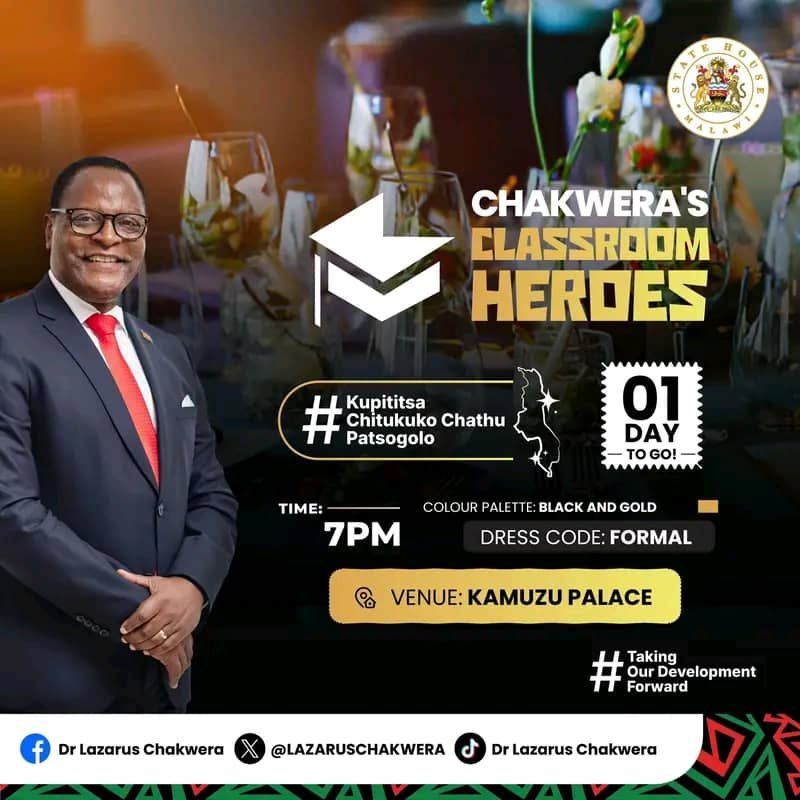
According to the President, those teachers who received the highest number of nominations have been selected for a special honour.
In total, 150 teachers have been identified through this public-driven process and will be hosted at the Kamuzu Palace.
President Chakwera announced that the selected teachers have been invited to the State House for a special ceremony scheduled to take place tomorrow.
The initiative, which is being promoted under the hashtag #ChakwerasClassroomHeroes, aims to spotlight the crucial role that teachers play in shaping the nation’s future.
Another hashtag used by the President, #TakingOurDevelopmentForward, reflects the administration’s continued emphasis on human capital development as a cornerstone for national progress.
The move has been widely welcomed by the public as a positive step in raising the profile of teachers, many of whom work under difficult conditions but remain committed to educating the next generation.
As the country gears up for the event, there is growing anticipation around how this gesture of recognition will inspire and motivate more teachers across Malawi.
President Chakwera’s initiative signals a renewed respect for the teaching profession and a call for society to celebrate educators as key agents of change and national development.


